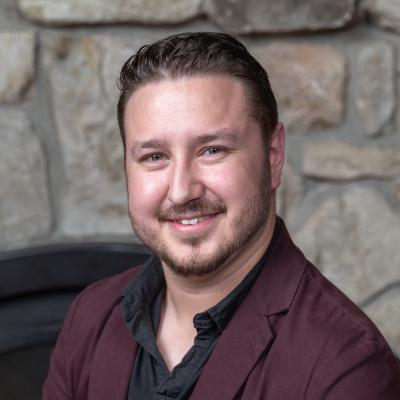Services
- Identifying potential funders
- Developing ideas into competitive projects
- Assisting with proposal development and editing
- Assisting with budget development
- Liaising with funding organizations and collaborators
- Coordinating proposal submission
- Facilitating award setup
- Overseeing award administration and compliance
- Coordinating submission of reports
- Managing closeout and record storage
Faculty successes and tips
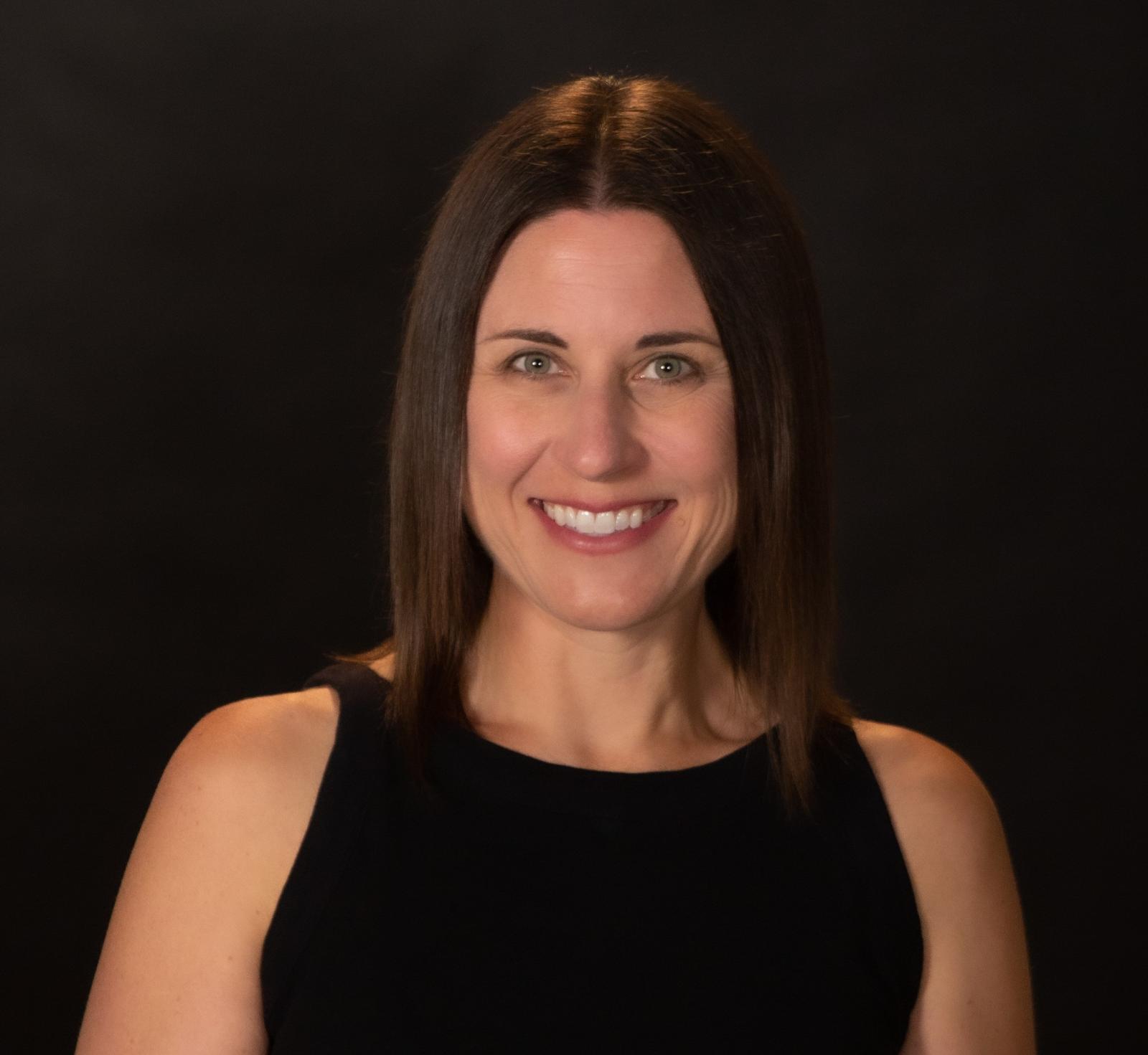
Lori Hilt, Psychology. Photo credit Liz Boutelle.
Lori Hilt was awarded a National Institutes of Health AREA grant (R15) for a clinical trial that ran from 2019-2022. She also has an NIH R1 subaward with Harvard's McLean Hospital. What was it like to work with the grants office? "I have been so impressed with the attention and effort that the Lawrence grants office gives to faculty. They have supported me through multiple applications, and they pay attention to the details, so that I can focus on the research. They have a wealth of knowledge, and if they don't know the answer to something, they know how to find it."
Lori's tips for aspiring grant seekers:
- Contact the grants office early in the process. They can help you find funders for your project.
- If you're applying for a federal grant, plan to spend some serious time on the application. Even if the application seems short, the instructions may be hundreds of pages long! The grants office will help you with this, but you need to have some lead time to get everything together.
- Consider including funding for staff (e.g., a full-time research coordinator, summer students, etc.) in your budget, so that you can have someone dedicated to the project while you're doing the other parts of your job (teaching and service).
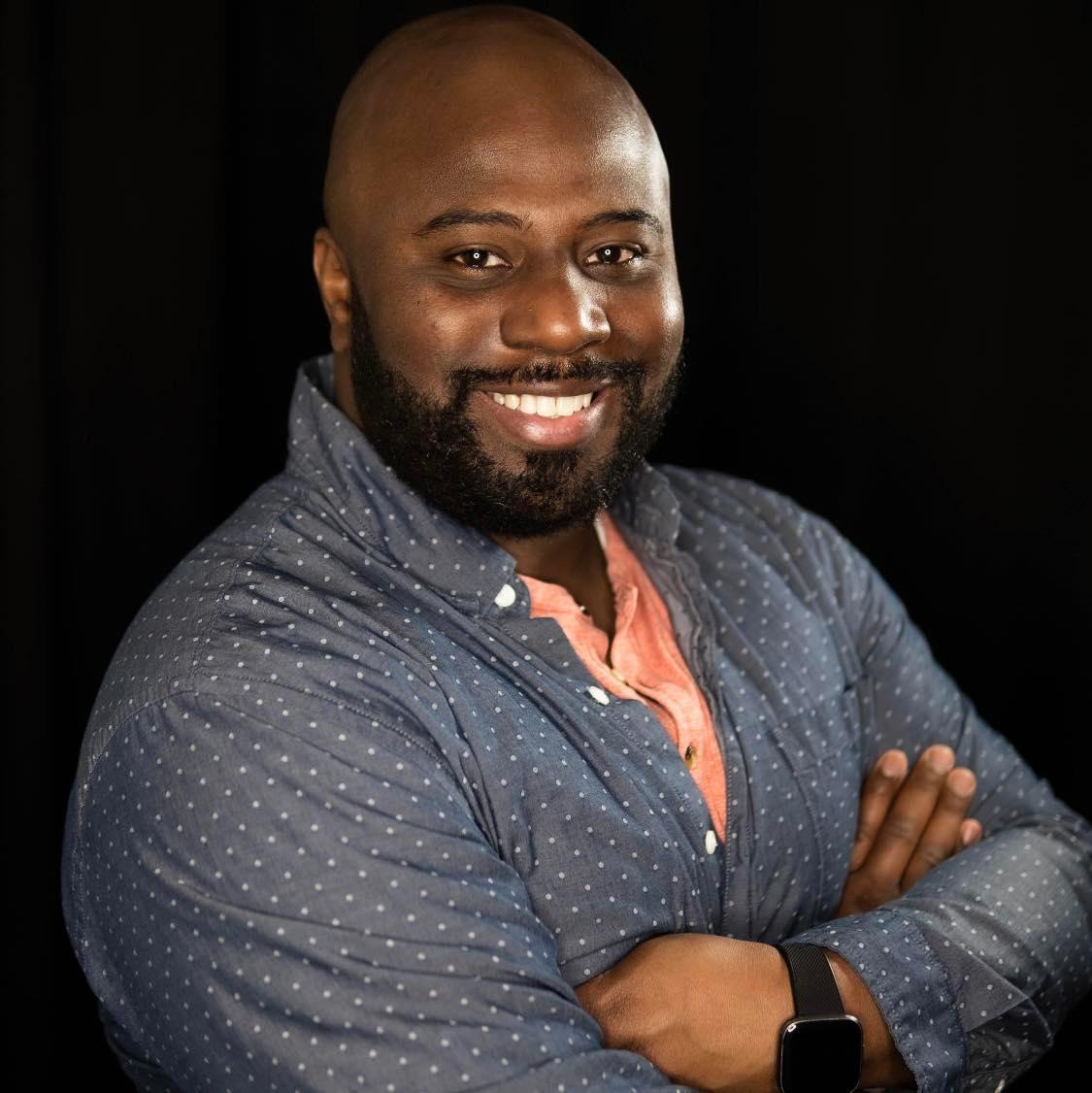
Jesús Smith, Ethnic Studies.
Jesús Smith won a prestigious national fellowship. Here's what he said about the application process: "I'll never forget my experience working with the grants office and Ariela Rosa in particular on the Institute for Citizens and Scholars (previously the Woodrow Wilson National Fellowship Foundation) Fellowship. She encouraged me to apply and worked with me daily as I wrote, and rewrote my fellowship materials to get them to be as perfectly aligned with the mission of the foundation as possible. This was the first time someone from Lawrence applied and of course there was no promise that we would succeed, but we worked hard on it and gave it our all. In the end, when I won it, I was stunned! I won a huge national grant, got an entire year off to do research, and salary compensation with the award. I honestly believe I would not have won it though without the guidance, finessing and support of Ariela and the grants office."
Jesús' advice for grant seekers:
- Keep an eye out on grants that you might know of and let the office know. Yes they can find foundations for you, but you can also give them ideas as well for grants that are specific to your expertise.
- Start early! The more time you have working on a grant, the better. That way you can prepare, connect with the foundation, work on several drafts of your materials and give it your best chance to succeed
- If at first you do not succeed, try, and try again. Grants are about making sure you are the right fit, you have a doable project and that you will succeed. It takes time to get it right and you won't always win but you got to keep trying.
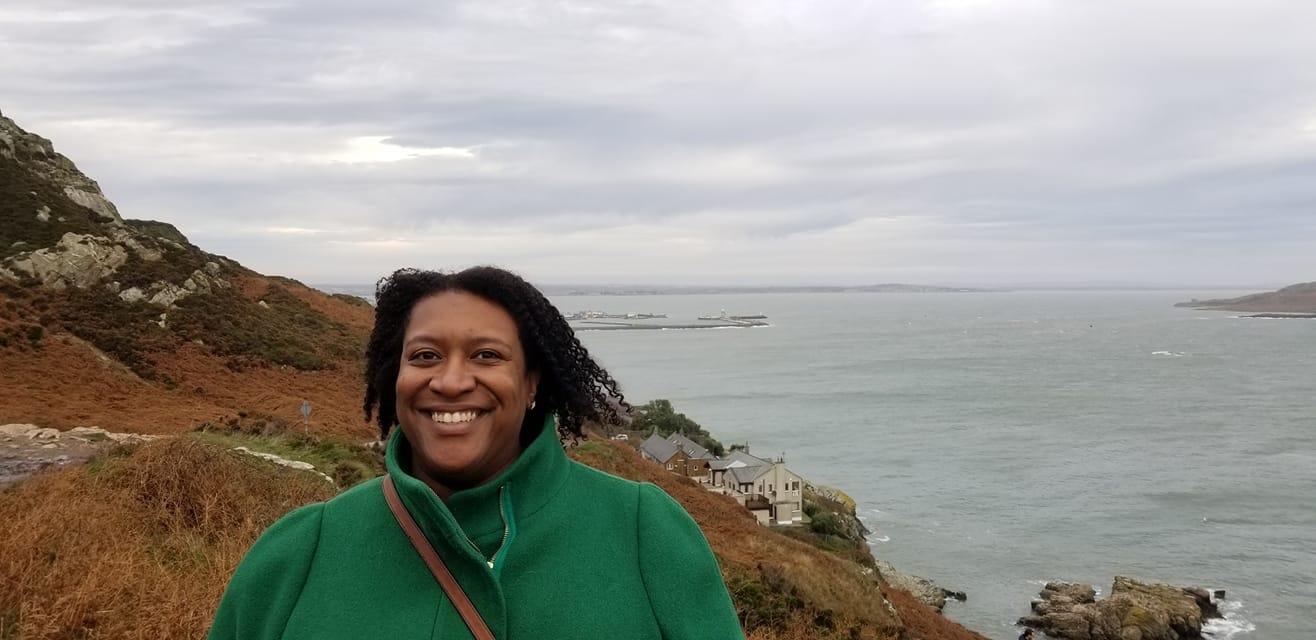
Terra Winston-Sage.
Terra received a Spirituality Mind Body Institute grant to reimagine Lawrence's On-Call Response System. Here's what she said about the process of applying: Working with the Lawrence Grant Team takes your dreams and makes them a reality! They work with staff, as well as faculty. The Grant’s Team is knowledgeable, creative and kind and are there to support you during every step of the process from application to implementation.
Terra's tips for success:
- Start working with them early in the process because they will come up with concepts you haven’t considered
- Don’t be afraid of bringing this team your early ideas or incomplete drafts; they don’t judge and always have ideas for taking you to the next step.
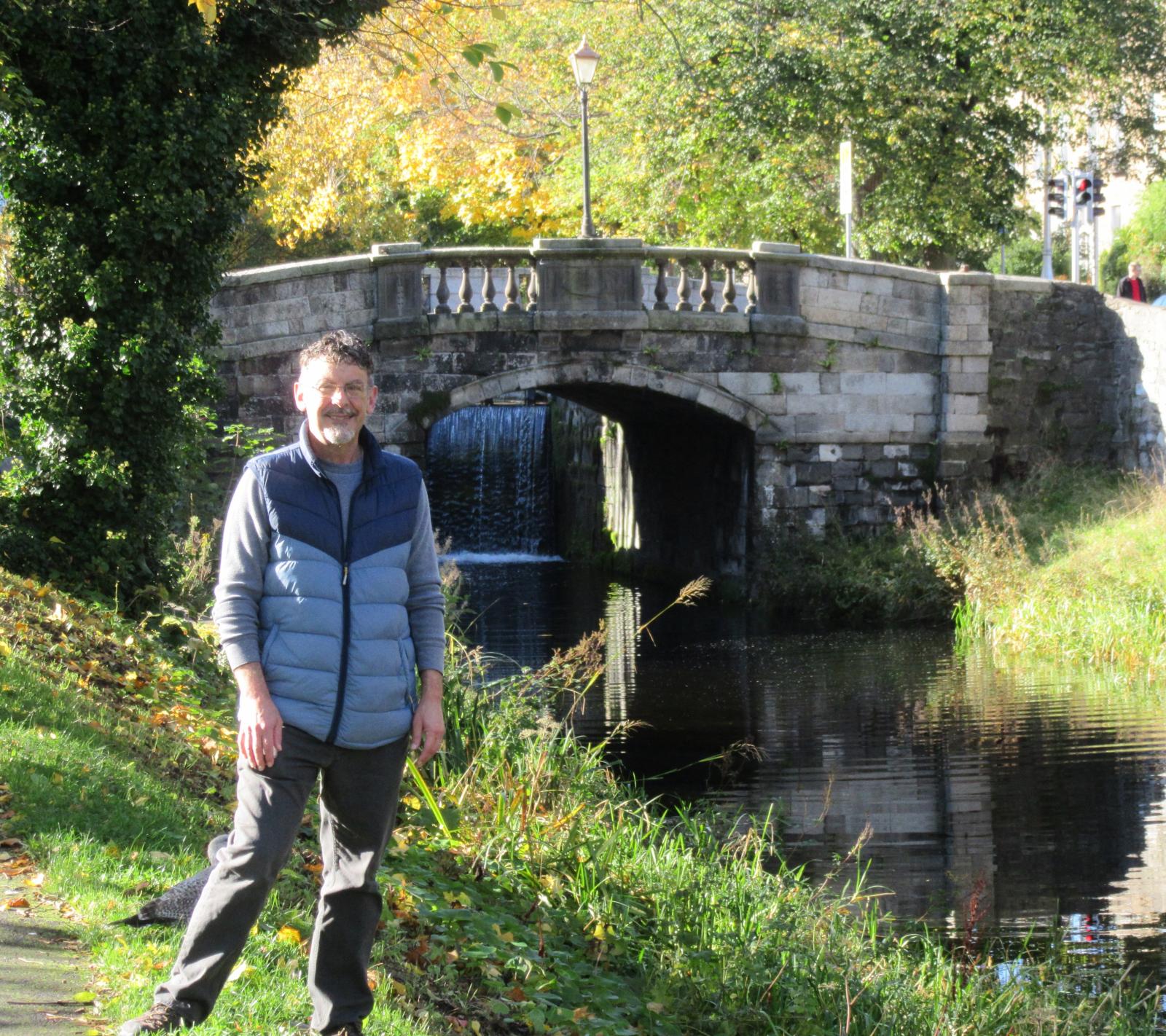
Tim Troy at the Grand Canal, Dublin, October 2022. Photo credit Jacque Troy.
Tim Troy won a Fulbright Scholar Award in 2022 to teach, research, and write a play at University College Dublin. What was it like working with the grants office? "Collegial, professional, and genuinely supportive, describe my experience working with Anna Beno and the rest of the grants office as I prepared my successful Fulbright Scholar application last year. Anna kept me on track as I prepared a complex and lengthy application. Most importantly, Anna’s guidance as she helped explain the finer points of grant language, conventions, and expectations ensured my final application was clear, clean, efficient, and always on task."
Tim's tips for fellowship success:
- Find a way to express urgency in your application. You need to do this project soon because an opportunity is out there now that cannot be easily replicated in the future.
- If you’re applying for a teaching AND research for a Fulbright or like opportunity, spend 75% of your application on the research project. Your standing as a Lawrence professor, a school well-known for good teaching, will foreground your overall credentials.
- As you present background knowledge in your subject area to prove you can successfully complete your research project, be careful to make no claims or anticipate your conclusions too narrowly. You never know the background of your evaluators and they may already have their opinions or conclusions about your area of expertise. The grant application is not the venue to prove a point or to be clever.
- On a similar topic, assume your reader/evaluators are smart, accomplished people, but are not familiar with your subject area. Use no jargon or assume they have discipline specific vocabulary. Imagine you’re talking to a colleague outside your discipline at a First Year Studies lunch.
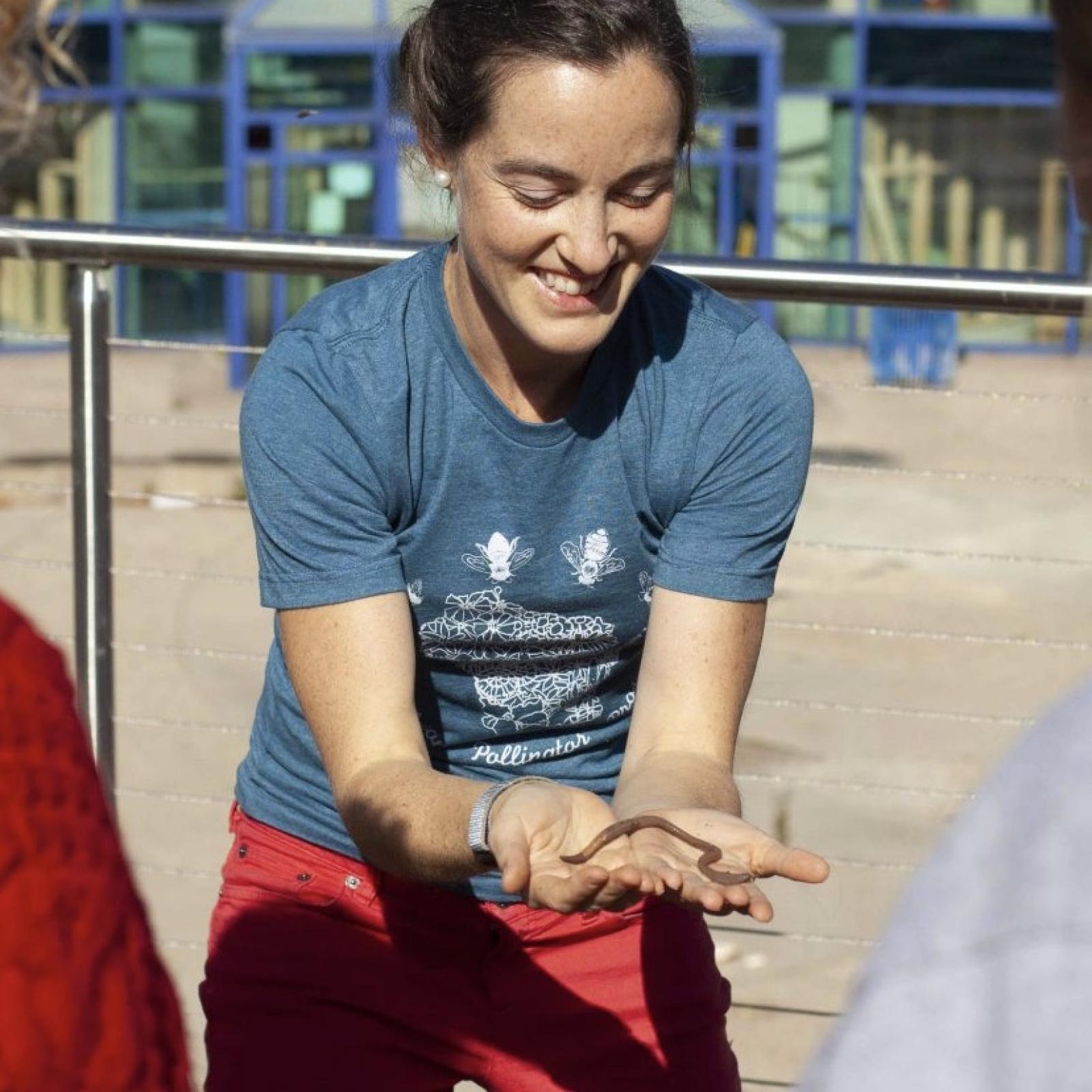
Relena Ribbons (Geosciences). Photo credit Danny Damiani.
Relena has been awarded two Wisconsin Space Grant Consortium Grants for her scientific research. Here's what she said about the application process: Ariela has a the uncanny ability to listen to my ideas and help me write the clearest and stronger proposals.
Relena's tips for grant seekers:
- Talk with Ariela early on about project ideas so she can help you develop talking points for both a specific grant and your overarching research program.
- Ariela has a fantastic editorial eye, but it’s essential to get her early drafts to maximize your grant outcomes.
